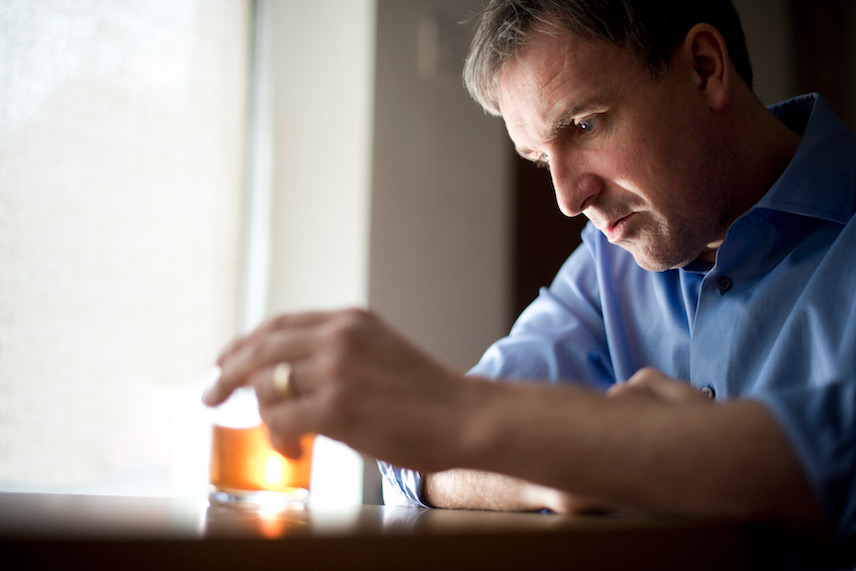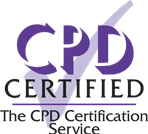
Alcohol addiction is a chronic condition which gets worse over time without treatment or if treatment is rushed without proper preparation. At The London Psychiatry Centre we recognise that every patient is an individual.
We believe that if you are truly going to put alcohol addiction behind you, a quick-fix, one-size-fits-all approach won’t cut it, so all our care is tailored to fit your specific needs. We aim for long-lasting results, therefore the treatment with us be the last one required in your life.
Free yourself from alcohol dependency and start living a healthier, happier life.
One in four people in England drink more than they should and this can unfortunately cause residual physical and mental health problems. This simple test can help determine if your drinking is more than recommended for a happy and healthy lifestyle. It will only take a few minutes, but can make a world of difference.
Answer the following three questions:
Q1. How often do you have a drink containing alcohol?
What Is Alcohol Dependence?
Alcohol is a psychologically and physically addictive drug and, sadly, many people from all walks of life misuse it and eventually become dependent on it. People misusing alcohol may be very confused by their inability to stop – as they are often capable and successful in other areas of life. However over time, alcohol dependence is associated with serious physical and psychological health problems and can have a devastating effect on personal relationships as well as working life. It is estimated that in Britain, around 9% of men and 4% of women are alcohol dependent.
Alcohol dependence tends to appear as an overwhelming desire to drink and an inability to temper or stop drinking once you’ve started. Many alcohol-dependent people describe a persistent preoccupation with alcohol and say that the need for a drink takes over their life. Drinking alcohol regularly can increase your body’s tolerance to it, meaning over time you need to consume more to feel its effects.
Am I Addicted To Alcohol?
Another indicator of alcohol addiction is if you experience physical withdrawal symptoms when you’re not drinking. You might experience the need to drink to stop these symptoms, which include:
- Feeling nauseous or vomiting first thing in the morning
- Tremors or shaking
- Difficulty sleeping
- Excessive sweating
- Racing heart
- Restlessness, irritability or anxiety
What Are The Side Effects Of Alcohol Dependency?
People who drink large quantities of alcohol are at greater risk of developing a host of conditions ranging from liver disease, liver cancer, alcoholic amnesia and even sexual dysfunction.
Stopping drinking suddenly can be dangerous as it could lead to epileptic seizures or even delirium tremens. This manifests in symptoms such as confusion, paranoia, hallucinations, excessive sweating, shaking, diarrhoea and high temperature. Delirium tremens can be life threatening and requires immediate medical attention. This is why at The London Psychiatry Centre we are careful to make sure that all our alcohol addiction treatment patients are subject to the most rigorous assessment processes and provided with the proper medical care to enable a safe detox.
How Can I Recover From Alcohol Addiction?
The first step in overcoming alcohol dependency is to recognise that something is wrong and to seek help.
At The London Psychiatry Centre, we employ a specially developed 8 week 3-stage system designed to get you back on your feet quickly – without turning your life upside down.
Our programme has been developed by Dr Christos Kouimtsidis, an award-winning psychiatrist who is a leader in the field of alcohol addiction. The effectiveness of his pioneering programme has been demonstrated and the results have been published in a number of scientific journals.
Here at The London Psychiatry Centre, we know our patients are incredibly busy people who often manage very hectic work schedules. Unlike other alcohol rehabilitation programmes that often involve months at a time away from home and work, our alcohol addiction treatment might only require only 2 weeks off work at home, meaning you can kick start your recovery with minimal disruption to your life. Most importantly, this approach enables you to integrate your new coping skills into your home and working environment – empowering you to move forward in change.
This integrated approach combines structured preparation and if required, a safe detoxification with Medical Care, expert Psychiatry with Dr Kouimtsidis, Addiction Counselling based on Cognitive Behaviour Therapy, Personal Training, Nutrition, and a Home Nursing Care Service. Where appropriate, we also encourage family involvement.
What Are the Stages Of Recovery For Alcohol Addiction?
Stage 1: The first stage is common for dependent and non-dependent drinkers. It involves usually 3 weekly appointments of 40 minutes. If you are non-dependent drinker and the aim is to control the drinking, typically only the first stage is necessary. Your family involvement and support is crucial and it is strongly advisable to be involved at this early stage.
If you are a dependent drinker, it is necessary to continue through stages 2 and 3 of the treatment. At the end of stage 1 we will review your progress, your aims and further treatment needs. For some patients stage 1 might be appropriate to be prolonged for another week and it might be possible to avoid stage 2 of treatment.
Stage 2: We begin with medication assisted withdrawal at home. This will last for 1 week and we will provide nursing support tailored to meet your needs. Experienced nurses will visit you at home or stay with for the total duration of the week with daily support and telephone review by the doctor.
In addition, depending on your needs, you could have support by a dietician and/or exercise coach.
Following the successful completion of detoxification, you will proceed to the final stage.
Stage 3: This stage will last for 4 weeks and includes brief weekly reviews by Dr Kouimtsidis and if required- additional support by an addiction counsellor. Furthermore, we highly recommend involvement with AA or a similar support group.
To find out how our esteemed programme can help you, please book an initial consultation with Dr Kouimtsidis. Simply call us on 020 7580 4224 to begin your journey to overcoming alcohol addiction.
Kouimtsidis C. 2011. Community alcohol detoxification; the challenge of changing service provision. Short report. Journal of Substance Use (Posted online on 8 Feb 2012).
Kouimtsidis C. Drabble K & Ford L. 2012. Implementation and evaluation of a three stages community treatment programme for alcohol dependence. A short report. Drugs: Education, Prevention and Policy; Vol. 19, No. 1, Pages 81-83.
Kouimtsidis C. & Ford L. 2011. A staged programme approach for alcohol dependence: Cognitive Behaviour Therapy groups for detoxification preparation and aftercare; preliminary findings. Short report. Drugs: Education, Prevention and Policy, 18 (3), 237-239.


